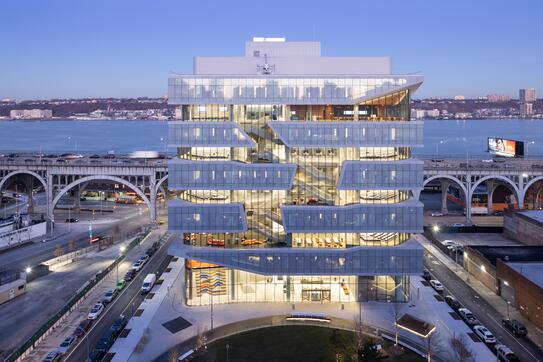NEW YORK – In a period of hyper partisanship, a change in party control in Washington, and large public spending to support small businesses, new data shows that political identity can also have a big impact on the economy, particularly in the development of new business. New research from Jorge Guzman, an Assistant Professor of Management at Columbia Business School examines the impact political identity has on economic expectations and finds that Americans are far more optimistic about the economy – and more likely to start a new business – when their political party is in power.
The study Partisan Entrepreneurship, co-authored with UC San Diego Rady School of Management Professors Joseph Engelberg and William Mullins, and University of Alberta Professor Runjing Lu, uses voter registrations of all citizens in 34 U.S. states together with state level firm registration data to study the way in which party affiliation connects with entrepreneurship across political cycles.
In between 1997 and 2017, the researchers find that individuals who identify as Republicans become entrepreneurs at a faster pace during Republican administrations than their Democratic counterparts during Democratic administrations, with sharp changes around the elections of President Obama in 2008 and President Trump in 2016. In those two elections, the partisan gap in the number of new businesses per 100,000 people in Red versus Blue states fell by 7.4 percent around Obama’s election and rose by 10.8 percent following Trump’s. They also show that this effect is stable across the firm quality distribution, impacting both local and high growth, innovative, startups. The number of start-ups initiated by "politically mismatched" individuals — that is, voters whose party did not control the Presidency — falls by 4.6 percent.
The overall gender gap in entrepreneurship also varies according to political identity. In the study’s 20-year sample, 10 percent of all men started a business while 5.6 percent of all women did so by comparison. Among Democrats, this gap is almost 20 percent smaller than the gap among independents, while among Republicans it is 30 percent larger. Past research on this topic has looked at entrepreneurship in context of political connections and allocation of government resources, but Professor Guzman’s study finds that the importance of political identity is growing. The effect that political change has on the most politically active entrepreneurs -- those that donate and vote -- opens up avenues for future research on the role political shifts play into the creation of new companies or the expansion of existing ones.
To learn more about the cutting-edge research being conducted at Columbia Business School, please visit www.gsb.columbia.edu.
###


